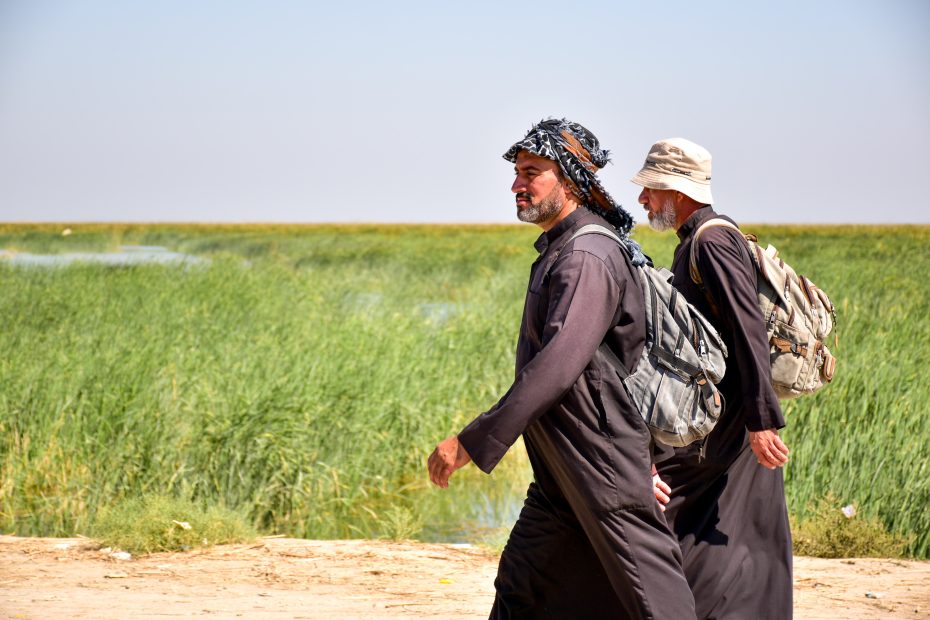Table of Contents
Introduction to Baghdad
With a storied history stretching back over 1,200 years, Baghdad holds an important place as the capital of Iraq. Though ravaged by war in recent decades, this resilient city on the Tigris River is undergoing a revival. New construction dots the skyline, efforts are underway to preserve ancient sites, and Baghdad is once again opening up to tourism. For travelers seeking an immersive cultural experience, Baghdad offers intriguing sights, warm hospitality, and a chance to engage with the past and present of this influential capital.
Main attractions and landmarks
No visit to Baghdad is complete without seeing key landmarks that speak to the city’s rich history as a global center of art, science, and commerce. The Baghdad Museum provides context with its wide-ranging collection spanning from ancient Mesopotamian artifacts to Islamic artworks. Wander through the leafy Baghdad Zoo to spot native wildlife. Bibliophiles will delight in the bookshops of Al-Mutanabbi Street, named for the famed 10th century poet who was born here. Snap a photo below the retro Baghdad Clock Tower, resembling London’s Big Ben. The beautifully tiled Al-Kadhimiya Mosque honors the 7th and 9th Shia Imams in an atmospheric setting. And the landmark Baghdad Gate still stands tall as an enduring symbol of the old city.
Experiencing local culture
To fully immerse in Iraqi culture, dive into Baghdad’s food scene. Try staples like kebabs, stuffed grape leaves, hummus and tahini washed down with sweet tea. Find live music and poetry in artsy cafes. Wander lively souks as shopkeepers sing out their wares. Attend cultural events like the Baghdad International Film Festival showcasing regional cinema. Marvel at Sufi rituals at saints’ shrines and Shia commemorations during Muharram. However you experience it, Baghdadian culture will leave you with new perspectives and unforgettable memories.
Shopping in Baghdad
Shopping is a beloved pastime in Baghdad’s bustling bazaars where bargaining is part of the fun. Antique hunters will be in heaven at the Souk Al-Ghazel, packed with treasures like ornate rugs, silver jewelry and old clocks. Coppersmiths ply their trade at Souk Al-Nisour. Pick up handmade textiles and crafts as unique souvenirs. Remember to bring small bills, have an idea of fair prices, and develop your best haggling skills. Prices usually start high, so counter with a much lower offer. Meeting somewhere in the middle will let both you and the merchant feel satisfied.
Getting around
Baghdad’s central neighborhoods are best discovered on foot, allowing you to randomly stumble upon hidden gems. For longer distances, local buses and shared taxis offer budget-friendly options to reach key sites. Uber and Careem provide an air conditioned alternative. While security has improved, caution is still warranted so avoid travelling alone or at night, and keep valuables concealed. Opt for busier streets and public areas. Neighborhoods like Karrada, Mansour and Zayouna offer plenty to see for travelers sticking to safe zones.
Where to stay
Baghdad offers a mix of modern hotels and traditional guesthouses. The Ishtar Sheraton is a luxurious international chain with multiple restaurants and a pool. Budget hotels like the Babylon Hotel provide no-frills lodging. For cultural immersion, stay at Ottoman-style riads or guesthouses located in old residences, like the restored Beit Salhiya. Advance booking is recommended as options fill fast. Ensure your accommodation has security protocols before checking in.
Day trips from Baghdad
Easy day trips allow you to venture beyond Baghdad’s city limits. Tour the ruins of ancient Babylon including the reconstructed Ishtar Gate. Samarra beckons with its spectacular spiral minaret and remains of the Abbasid-era city. The shrine cities of Karbala and Najaf have important pilgrimage sites for Shia Muslims. For nature lovers, hike among the waterfalls of Ahwar Marshlands. A quick getaway to heritage sites rounds out your Iraqi adventure.
Conclusion
Though often overlooked, Baghdad offers intrepid travelers real opportunities to engage with Iraq’s pivotal history and resilient culture. From museums and mosques to maqams and markets, Baghdad’s sights provide glimpses into the region’s ingenuity. Improved stability means locals are ready to proudly showcase their spirited capital again. Beyond the headlines, lay the foundations of an ancient crossroads now rebuilding into a hub of promise on the global stage once more.
FAQs
What is the best time of year to visit Baghdad?
Spring (March to May) and fall (September to November) are ideal with moderate temperatures perfect for sightseeing. Summer can be very hot.
What vaccinations are needed to visit Baghdad?
Recommended vaccinations include hepatitis A and B, typhoid, tetanus, and rabies. Malaria preventive medication may be suggested if also visiting southern Iraq.
What is there to do in Baghdad at night?
Popular nighttime activities include strolling along the Tigris River, enjoying dinner cruises on the water, visiting lively cafes and shisha bars, going to the theater for plays and concerts, and shopping at night markets.
What is the best way to travel between Baghdad and other parts of Iraq?
You can take domestic flights between Baghdad and other major cities like Basra, Erbil and Najaf. Buses and shared taxis are cheaper options for intercity travel.
What should you wear in Baghdad?
Dress conservatively by covering your legs and arms. Many local women wear hijabs in public, but headscarves are not mandatory for foreign women. Just avoid overly revealing clothing.
